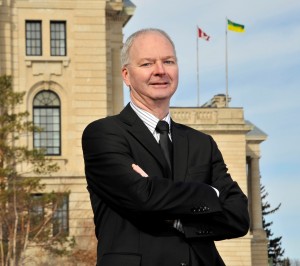Written by guest blogger, Raymond Blake
 Governing is a messy business in any state and none more so than in federal ones like Canada where authority is shared between two orders of government. Yet, federalism is not an end in itself but simply a means of dividing jurisdiction in the hopes of capturing the loyalty of various political communities to maintain stability within the nation while allowing all citizens and subnational units to flourish and prosper. Federal systems thrive and enjoy stability when they deliver on their promise of fairness and equity for all its members. Today, intergovernmental relations between the national and provincial states are reasonably harmonious but it was not always thus.
Governing is a messy business in any state and none more so than in federal ones like Canada where authority is shared between two orders of government. Yet, federalism is not an end in itself but simply a means of dividing jurisdiction in the hopes of capturing the loyalty of various political communities to maintain stability within the nation while allowing all citizens and subnational units to flourish and prosper. Federal systems thrive and enjoy stability when they deliver on their promise of fairness and equity for all its members. Today, intergovernmental relations between the national and provincial states are reasonably harmonious but it was not always thus.
My Canadian Historical Review article explores a recent period when federal-provincial relations were so rancorous that it imperilled the unity and stability of Canada. In this particular instance the issue was control of the rich oil fields in the North Atlantic nearly 300 kilometres off the coast of Newfoundland and Labrador. From the moment that exploration began there in the late 1950s and seismic testing revealed huge possibilities, Newfoundland claimed that it owned the resource. If it had not joined Confederation in 1949, Canada would not have had any claim to the offshore.
Such claims mattered little two decades later when energy security became a national obsession, at the same time that Quebec flirted with separation and Albertans proudly pasted “Let the Eastern Bastards Freeze in the Dark” bumper stickers on their vehicles. Prime Minister Pierre Trudeau – and Canadians, too, especially those in Ontario — feared the accelerating descent of the country towards a rapidly decentralized federation. If the trend continued, many feared, Canada would disappear. Trudeau believed that those decentralist forces had to be reversed and the economic powers of the federal state strengthened. Only a strong central government could create the conditions that allowed all citizens throughout the nation to prosper.
Few of the premiers agreed with such logic, and this article focuses on Brian Peckford, the premier of Newfoundland and Labrador who maintained that the Canada’s federal system with a succession of strong governments in Ottawa had failed to improve his province’s social and economic well-being after it joined Canada. Nor had centralized power in Ottawa fostered the economic growth and prosperity of any of the four Atlantic provinces. Peckford argued that a strong national community and national stability were only possible if Canadian federalism provided a fair measure of equality for all provinces. To him, decentralization was the solution, not the problem: only a provincial government with control over its own resources could foster a sustainable economic and vibrant social community in Newfoundland and Labrador and bridge the fiscal and financial gap that existed between his province and the rest of Canada.
The two politicians did not particularly like each other but their quarrel was not personal: it was a battle of ideas. Was Canada to be a decentralized or a centralized federal state and which form would best create fairness, equality and social justice for all citizens. From the late 1970s to the early 1980s, Peckford and Trudeau fought like scorpions trapped in a bottle. Not surprisingly, their quarrel imperilled the working of intergovernmental relations between Newfoundland and Ottawa; it was a low, dishonest period in the annals of Canadian federalism.
The internecine strife introduced in the CHR article is merely one in a long series of intergovernmental controversies that are explored in their fullness in Lions and Jellyfish. Newfoundland-Ottawa Relations since 1957 which will be published this summer by the University of Toronto Press.
Comments on this entry are closed.